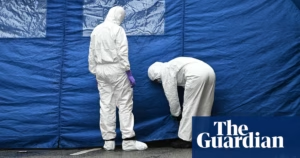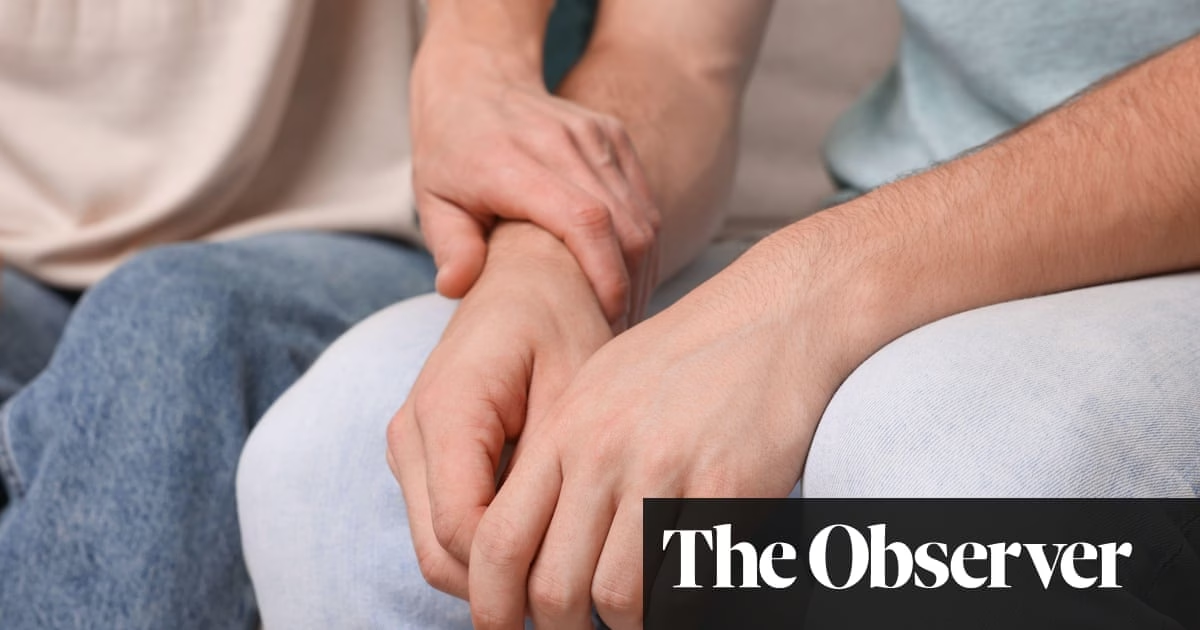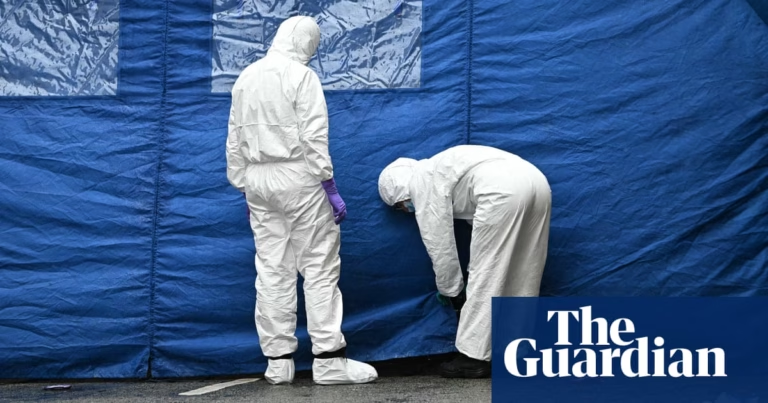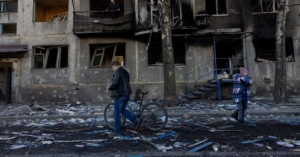I’m gazing at the faces of women on my screen, completely captivated by emotions too intricate to understand; yet recognizable are sorrow, anger… and fear.
The women displayed are among the over 170 mothers killed by their sons in the UK over the past 15 years. Their heartbreaking tragedy—being killed by the person they brought into life—has a deeply unsettling impact. Like many of those whose deaths have been highlighted in the Femicide Census report, I am a professional with beloved adult children and a close network of friends. I am also frightened of my son.
The backstories of these women are all too familiar – a grown son dealing with mental health and social issues, substance abuse, neurological diagnoses, and a history of controlling and violent behavior. Invariably, these perpetrators have slipped through every safety net designed to protect them. Often, no such net was ever in place.
It’s a peculiar and challenging place to be, to be simultaneously scared of and deeply wish to support and protect your son. It’s tough enough to leave an abusive partner, but to leave a child with vulnerabilities and suffering that tug at the heart is even harder. At 24, my son lives with learning disabilities with no hope of the aspirations that his neurotypical peers have: no career progression, no partner, no cultural events or meaningful friendships. Life is a struggle he endures. I could never imagine being in his shoes. He needs my support, advocacy, and protection. He still sleeps with his security blanket. I won’t abandon him.
But I often wish I could. Recently, I received a text message filled with violent language. It was sent after I blocked his calls, asking the same question over and over for 20 minutes. I was at work when he called 76 more times. Such messages are common, as is the behavior of driving while violently elbowing the seat near me – the list of challenging behaviors is long and exhausting. It’s not just autistic meltdowns due to an inability to regulate emotions, but also expressions of deep-rooted mental health issues.
In these photographs, I see resilient, intellectual, smiling women—doing their best to live ordinarily despite a backdrop of abnormalities very few can understand. I am filled with sorrow for them, as I am for the mostly young men who killed the one person who loved and supported them the most.
In many cases, these women sought help. An inquest into the death of Sally Poynton, 44, who was stabbed repeatedly by her 22-year-old son Jacob Poynton-Whiting during a severe psychotic episode in June 2021, found that her death could have been prevented if her son’s mental health condition had been diagnosed earlier. She had attempted to get help for him more than 20 times.
Research soon to be published confirms the link between matricide and mental health issues. Academics Professor Rachel Condry and Dr. Caroline Miles, from the universities of Oxford and Manchester, collaborated with the Femicide Census to discover that in 70% of cases involving women killed by their sons and grandsons between 2009-2021, the perpetrators had mental health problems.
However, help is too often lacking or ineffective because, as the British Medical Association states, our mental health and social care systems are “broken.” Critical areas needing immediate action include insufficient funding, a lack of trained staff, and support systems operating in isolation.
In our case, my son doesn’t qualify for a dedicated social worker because he isn’t considered to be in crisis. Although he’s not thriving physically or emotionally, it’s not enough to warrant intervention. The social care system responds reactively—action is taken when a crisis occurs, not when it might be preventable. Mental health services, in particular, overlook many on the autistic spectrum, such as my son, who doesn’t receive mental health interventions since turning 18 and no longer being eligible for Child and Adolescent Mental Health Service.
My son urgently needs therapeutic support to manage his anxiety, depression, and emotions, in addition to medication prescribed by a specialist in his conditions, including autism, pathological demand avoidance, ADHD, and OCD. The medication is managed by a general practitioner who, while competent, lacks specialized training in mental health and neurodivergent conditions.
He also requires assistance to navigate his complex feelings towards me. A dysfunctional mother-son relationship isn’t unique to the neurodivergent or new – the Orestes complex, where a son harbors an unconscious desire to kill his mother, is a parable dating back to ancient Greece. Friends have sons who are neurotypical and exhibit similar behavior, but during conflicts, their sons roll their eyes or behave irritably. With a son unable to regulate his emotions, these conflicts can be tragically fatal.
Societal structures should save lives. Mental health support offering emotional management tools, combined with social care systems enabling individuals with behavioral and social challenges to flourish. And living arrangements that provide community, activity, and cohesion, rather than simply housing vulnerable people.
However, this vision seems bleakly distant, and I fear this year won’t be the last International Women’s Day marked by reports of failures leading to deaths and shattered families. It’s often parents, particularly mothers, who bear the brunt of systemic failures and take on the role of supporting volatile, troubled sons. The danger to them is frequently overlooked; one case involved a man whose medical records advised against being left alone with female staff, but no one questioned his living arrangement with his mother.
My son was removed from the house in 2018, not because he was attacking me, but because minors were present. I remain significantly involved in his care, but sometimes I feel unsafe. Writing these words in the quiet of my home feels dramatic, but if he had remained living with me, I believe my photo could have been among those women. I cannot say it never will be.
Source: https://www.theguardian.com/society/2025/mar/08/i-adore-my-children-im-also-scared-that-one-day-my-son-will-kill-me








